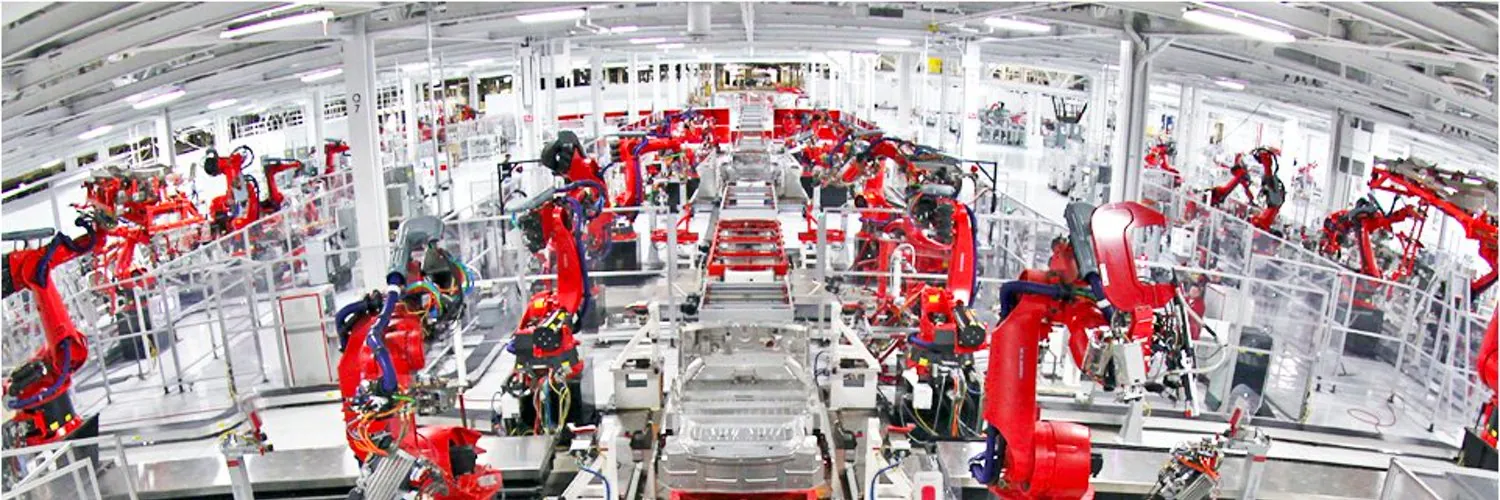why_not_spoons
jobs are not the end-goal of civilization
No bio...
User ID: 1661
To be clear, I think there will be UBI, but I think every government will attach strings to it that involve a hybrid of existing incentives, social credit and new incentives.
I don't think it actually changes your point, but I don't think "UBI" is an appropriate term for the type of welfare / economy design you're talking about. The key distinguishing factor between UBI and welfare is that UBI is universal, paid out at the exact same rate to all adults (although I guess I've seen discussions over exactly how to handle payments to people in prison, with some versions stopping UBI payments to them).
I don't think this is an argument against expecting the world to possibly look like this or even an argument against expecting politicians to implement it and call it UBI.
UBI obliterates the 'carrot'.
I assume the idea is that we're predicting a society where there's no jobs (since AI does all of them) so there's no opportunities for income other than welfare? If that's the case, then not having a welfare scheme is sentencing all of the non-owners to death. If it's not the case, then there's still a carrot. Maybe there's some in-between here where somehow neither is the case?
I've certainly seen a lot of complaints along these lines, but I have no idea what solution is. One detail missing is that there are a lot of postdocs and private sector researchers who are often seen as grad students who "failed" to become tenure-track professors, so they instead go do actual research work. But grant writing or related begging for funding eats up a lot of time of the people who are supposed to be our smartest scientists (hot-shot tenure-track professors). And I've seen a lot of complaints that it also directs research in bad/inefficient directions. Research money has to be distributed somehow; not sure what a better system would look like. I assume "low hanging fruit" is part of the problem in that research projects used to be cheaper, so funding them was simpler.
EDIT EDIT EDIT: On reflection right now the Shutterstock curation process (so you only get to see the good generations) does represent a concrete value add, but one that decreases in value over time as image generation products get better.
I was assuming this was the value-add. At least with existing tech, figuring out how to phrase the query is a skill. And I've seen some tutorials on getting good results out of Stable Diffusion talking about making multiple img2img passes. I could certainly believe some future tech will be able to give a perfectly acceptable endless list of good images to an unsophisticated human asking for "a stock image of [...]", but the tech isn't there yet. Shutterstock is betting on there continuing to be a gap for some human effort to fill for some time; given that these techniques seem to be progressing quite quickly, I guess we'll see how much time they're actually buying themselves. At some point the human effort is small enough that it gets pushed back onto the graphic designer who is currently doing the effort of querying and selecting an image from Shutterstock.
Well that and continuing their existing job of providing legal/copyright insurance on the images: you're paying for the issue of copyright of AI generated images to be Shutterstock's problem.
Yes, I was trying to get at the disconnect between what the science says and what the media/public believe the science says. That oversimplification of how vaccines work has resulted in a lot of bad policy and people feeling lied to and writing things like (quoting the original post in this thread):
Why did they declare the "vaccines" to be 100% effective if they were never tested for transmission reduction? (and yes I am putting the term into quotation marks because they don't appear to be what is commonly thought of as vaccines, instead working as a kind of therapeutic with alleged short term effectiveness that must be dosed in advance.)
which is based on a misunderstanding of what vaccines do, albeit one that was justifiably common before we had an easy way to check for infection separate from disease.
I'm really unclear from listening to TWiV how long scientists have known this / how wide-spread the knowledge was. The scientists on TWiV maintain they have been saying that all along (and, obviously, their episode history is public so they've pointed to instances of them saying it in 2020).
The following are all different possibilities:
-
The politicians/media lied to us, knowing vaccines wouldn't stop transmission,
-
Their science advisors told them vaccines would stop transmission because that was the scientific consensus,
-
[...] but their science advisors should have known better,
-
[...] there's no reasonable way their science advisors could have been expected to know better but actually new science later showed that was wrong.
I think we're unlikely to have a productive conversation if we can't agree on which of those (or possibly some other option I haven't listed; that certainly isn't an exhaustive list) worlds we live in. TWiV seems to be saying that (3) is accurate. (And TWiV appears to be a group of appropriately qualified experts to be making such claims.) (EDIT: Or to be less consensus building-y, at least be having a discussion about which world we live in.)
The science communication on vaccines was really bad. Expecting long-term protection from anything other than severe disease was unscientific wishful thinking that a lot of people who should have known better repeated. TWiV ("This Week in Virology" podcast which tries hard to limit their claims to ones backed by published scientific papers) talks about this a lot, especially in their recent episodes with Andy Slavitt and Paul Offit (another with Offit a few weeks earlier) (Paul Offit is a vaccine scientist who was one of two "no" votes on the FDA panel deciding whether to recommend the new bivalent boosters). (BTW, those links are all to podcasts; for transcripts, they recommend you view them on YouTube and use YouTube's auto-transcription feature.)
It's unclear where the science breakdown happened, but in general vaccines do not prevent infection, only serious disease; the question is whether the vaccine's effect on the disease progression is sufficient to prevent/reduce transmission and without modern tools like PCR tests it's really hard to tell the difference. COVID-19 is not the only disease we know this is true for. IPV (Inactivated Polio Vaccine), the injected Polio vaccine used in most developed countries) does not prevent transmission of Polio, it only protects from severe disease (mild Polio looks like any other cold and no one tests people with minor colds for Polio infection). That Wikipedia link strongly implies that the vaccine does a lot more than that, and the common belief that IPV confers immunity to Polio is probably an indirect cause of the recent case of severe Polio in New York. Polio is apparently a specialty of the host of TWiV so he talks about it a lot and in detail. Our entire Polio eradication effort is based partially on this misunderstanding and they talk on TWiV about how the entire approach may be misguided; that is, that the end-game looks like everyone gets IPV forever, not that we can eventually feel safe not bothering like with Smallpox (although, uh, see Monkeypox).
Note this appears to be mostly a property of the infectious agent (and its interactions with the human immune system), not the vaccine. For whatever reason, the human immune system doesn't maintain long-term a strong enough defense against coronaviruses to be able to fight them off fast enough to stop the infection before transmission; it's not clear to me this has anything to do with the virus mutating. Other viruses take long enough from infection to transmission that a second exposure usually does not result in the individual becoming contagious.
What does "vaccine efficacy" mean?
TWiV repeatedly harps on this, that "vaccine efficacy" without specifying efficacy against what is poor communication. Efficacy against death is relatively straightforward to define. Efficacy against severe disease... actually already gets tricky because this usually is measured through counting hospitalizations with certain codes and different countries and different times through the pandemic have had very different standards for who to hospitalize (and how good they are at coding them properly). Efficacy against infection requires defining what counts as an "infection": a rapid test? a PCR test? if so, at what cycle count threshold? or infectious viral load? once again at what threshold? (and in whose BSL-3?)
- Prev
- Next


If we're talkingtime-loop story games, I'm going to throw in a recommendation for Elsinore. I did enjoy The Forgotten City, too, although both have the problem that unlike Outer Wilds, the explanation for the time loop just feels like bad writing. Although that felt worse in The Forgotten City because that was the end of the game and it felt unsatisfying.
More options
Context Copy link